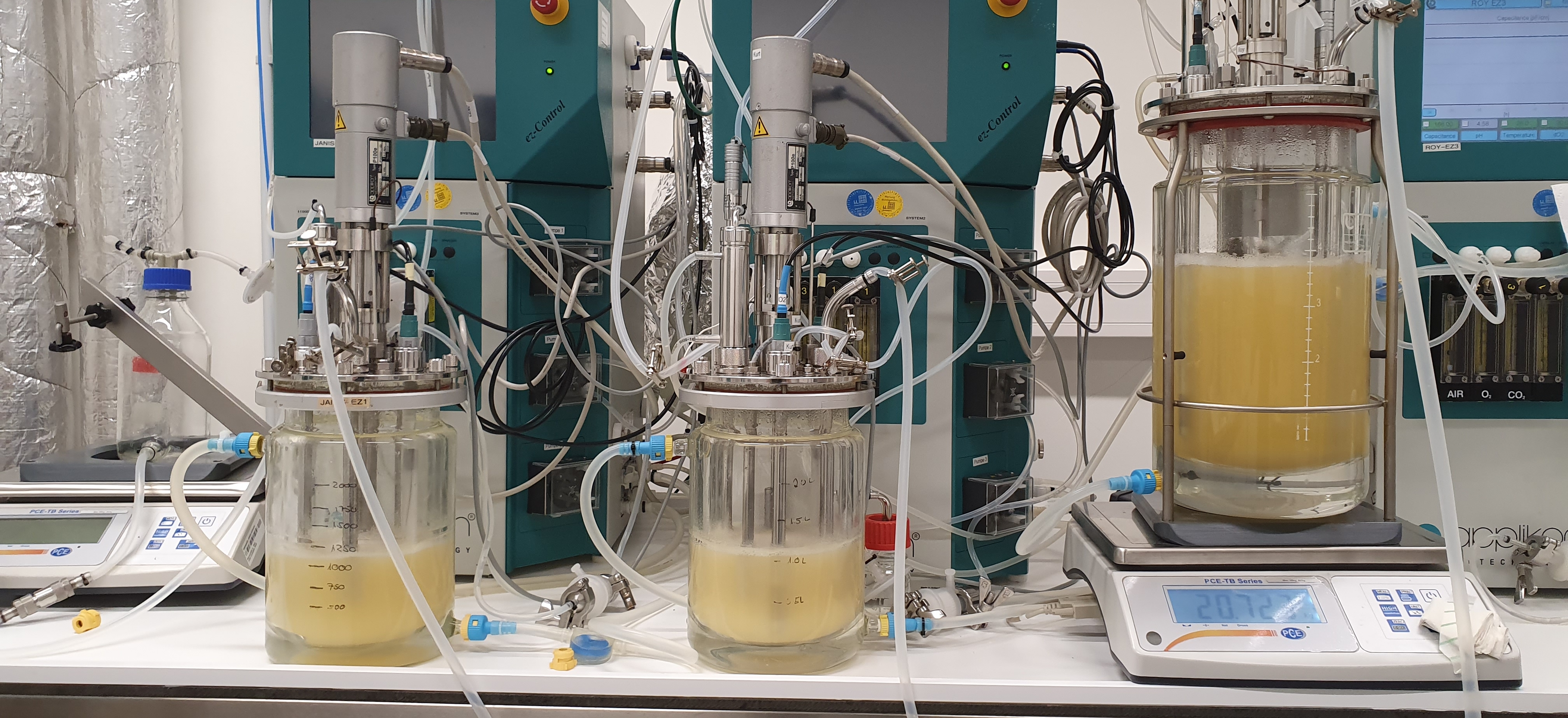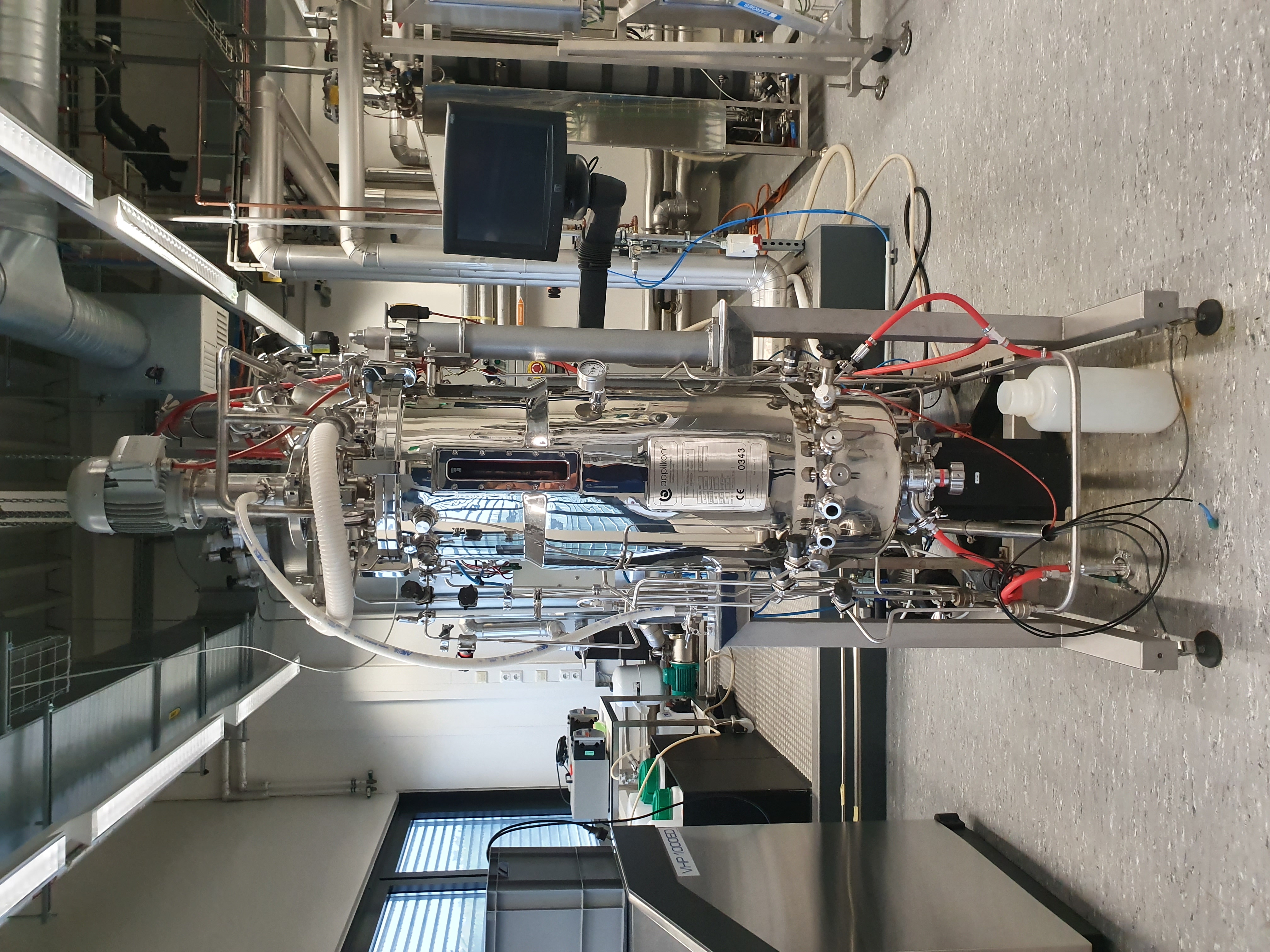The production of drugs is often cost-intensive, as only a few successful products reach the market and these have to compensate for the costs of failed candidates. It is therefore important that successful products reach the market as quickly as possible and that unsuitable candidates are identified early during development. It is therefore important that a scalable production process is established quickly and reliably early during a project and that the candidates are compatible with this process. In the department of Bioprocess Engineering, we are therefore investigating how the use of predictive models, e.g. for chromatographic separation, can successfully shape the development of such processes within weeks during the first few months of a project. A combination of descriptive and mechanistic models is applied to individual drug candidates, such as antibodies and vaccines, in order to compare different production processes in silico and to verify the most promising ones using high-throughput methods.
 Fraunhofer Institute for Molecular Biology and Applied Ecology IME
Fraunhofer Institute for Molecular Biology and Applied Ecology IME
